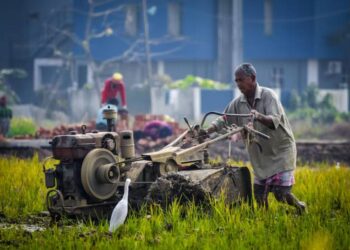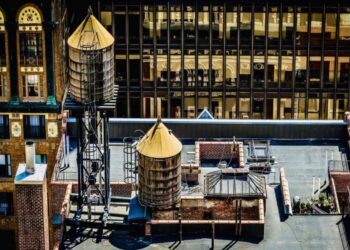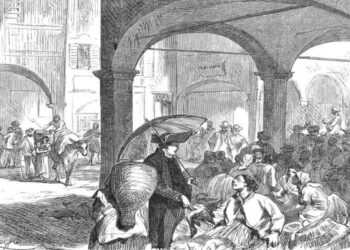In a landmark decision that reverberated across academia, a federal judge recently denied a motion to lift the suspension of 20 Arizona State University (ASU) students who were arrested last week during anti-Israel protests.
The ruling, rooted in a nuanced interplay between First Amendment rights and university policies, emphasized the need to maintain a delicate balance between free speech and campus regulations. These suspensions occurred against the backdrop of a growing wave of protests on U.S. campuses, with students demanding that universities divest from companies profiting from the conflict in Gaza.
The decision at ASU highlights the increasing tension between academic institutions seeking to enforce their policies and students exercising their right to protest. As these campus movements gain momentum, they challenge universities to navigate constitutional rights, public safety concerns, and academic priorities amid a politically charged atmosphere.
Judicial Decision: Upholding University Disciplinary Measures
U.S. District Judge John Tuchi ruled that the ASU students did not provide sufficient evidence to support their claims that the university’s suspension was causing “irreparable harm” or that their First Amendment rights were violated.
The students were among the 72 individuals apprehended on April 26 when ASU police cleared the Old Main lawn area during an overnight sweep of a protest encampment. Protesters, including faculty members, were arrested on charges of trespassing.
Despite facing disciplinary actions like campus bans and restrictions on communication with professors—which students argue significantly hindered their ability to complete coursework—Judge Tuchi ruled that there was insufficient evidence that the suspensions violated their constitutional rights.
The students’ motion argued that the university’s disciplinary actions were disproportionate and failed to recognize that some of them hadn’t brought camping equipment and had no intention of staying overnight. Additionally, one student was arrested hours before the anti-camping rules would have taken effect. They contended that the suspensions also disrupted finals week, preventing them from completing exams or submitting final projects.
However, ASU officials emphasized that the students were suspended specifically for violating anti-camping policies, not for the content of their protest. Defense attorney David Gaona reinforced that the university remains committed to upholding free speech, provided that campus rules and safety protocols are observed. Judge Tuchi concluded that the students did not adequately prove their case and ultimately upheld the university’s disciplinary measures.
Legal Perspectives And Protest Responses
David Chami, the attorney representing the suspended ASU students, argued that the university’s disciplinary measures were disproportionate and failed to uphold the principle of “innocent until proven guilty.” Chami maintained that the protest was a peaceful demonstration of students exercising their First Amendment rights to free speech and assembly. He emphasized that the university’s immediate suspension of students, without considering their circumstances or intentions, unfairly penalized them for simply expressing dissent.
Chami also pointed out that some students were arrested well before the anti-camping rules technically took effect and that none of the arrested individuals had brought camping equipment or indicated plans to remain overnight. He criticized ASU’s actions as contrary to the constitutional values of free expression.
On the other hand, defense attorney David Gaona argued that the university had followed proper protocol by enforcing anti-camping policies that aim to maintain campus safety and order. Gaona stated that ASU remains committed to protecting free speech but must balance this with campus policies that prevent unauthorized encampments.
He noted that the students had opportunities to meet with student services before final exams to address their academic challenges and potentially have their suspensions lifted. However, the students declined to attend without legal counsel, thereby missing crucial deadlines that could have softened the impact of their suspensions on coursework.
He emphasized that leniency might have been granted if students had attended these meetings and explained their specific circumstances.
The suspended students received emails notifying them of their suspension on Sunday, just before the start of finals week. The bans not only barred them from campus but also prevented them from contacting professors, which severely hindered their ability to complete exams, submit final projects, or, in one case, graduate and receive their degrees.
Freshman Harry Smith missed the submission deadline for a critical final project while sitting in a campus police holding cell, highlighting the immediate and far-reaching academic consequences of the disciplinary measures.
ASU senior Breanna Brocker, one of the plaintiffs, lamented that she could not attend her graduation ceremony. Having missed her high school graduation in 2020 due to the pandemic, she felt this was another lost opportunity to celebrate her academic achievements. However, despite the consequences, she remained resolute, stating that she would still have joined the protest if she could go back in time. She explained that witnessing the destruction and loss of life in Gaza prompted her to act.
While the decision at ASU sets a significant precedent, it is only a fragment of a larger narrative playing out across U.S. universities. Protesters at the University of Southern California (USC), Northeastern University, Indiana University, and others have organized similar movements, calling on their institutions to divest from companies profiting from the conflict in Gaza. Despite arrests and stern warnings from university administrators, students have continued to advocate for policy changes and the protection of free speech on campus.
At USC, associate professor of communications and journalism Mike Ananny published an open letter in the Daily Trojan, criticizing the university’s leadership for their handling of peaceful protests on campus. He condemned the decision to cancel Asna Tabassum’s valedictorian commencement speech and the subsequent decision to cancel the main stage ceremony. Ananny argued that the actions of President Carol Folt and Provost Andrew Guzman demonstrated a lack of trust in students and faculty and undermined the university’s commitment to free expression.
The wave of protests has not been without resistance from universities and local authorities. At Northeastern University in Boston, police arrested over 100 people while clearing what officials deemed an “unauthorized encampment.” At Indiana University Bloomington, police detained 23 people for similar encampment violations. Riot gear-clad officers confronted protesters, attempting to break up groups of students linked arm-in-arm.
The University of Illinois warned protesters of potential arrests and interim suspensions for continuing on-campus demonstrations, while at Emory University in Atlanta, arrests of two professors sparked a faculty-led movement calling for the resignation of the university president. Columbia University saw relatively calm conditions after a week of tense protests, but student leaders and university administrators remain locked in negotiations regarding the situation on campus.
Campus activism has a long history in the United States. Students have often used university grounds as a forum for expressing dissent and advocating for social change, from civil rights to anti-war movements. The current wave of pro-Palestinian protests is reminiscent of the anti-Vietnam War demonstrations that swept through U.S. campuses in the 1960s and 70s.
While universities maintain policies to prevent disruptions to academic activities and protect campus safety, students and faculty continue to assert their constitutional right to free speech and peaceful assembly. Balancing these rights with administrative responsibilities remains a complex and evolving challenge.
As nationwide protests continue, universities find themselves navigating a delicate balance between enforcing policies and respecting the rights of their students and faculty. The ASU case sets a precedent that could influence how other institutions handle similar situations. However, students and activists remain undeterred in their demand for change, vowing to continue pushing for the protection of their constitutional rights and university accountability.
This landmark ruling at ASU underscores the ongoing tension between student activists and university administrators and raises broader questions about how institutions can uphold free speech while ensuring campus policies are respected. In this evolving landscape, one thing remains clear: the battle for free expression and academic justice will continue to play out in lecture halls, student unions, and courtrooms across the nation.







